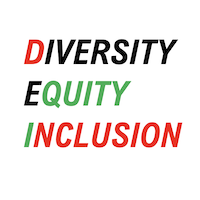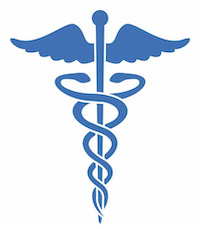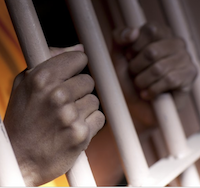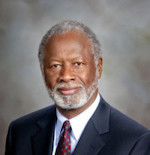I have been speaking with a lot of our community’s political leaders lately in the aftermath of last month’s volcanic decision to smash the existing political compact.
There were many civic-minded citizens on both sides of the question of how best to reform a Byzantine system of government that promoted nepotism, encouraged inefficiency, rewarded mediocrity, and tolerated corruption. But the decision was made in the crisis atmosphere that typifies much of our community decision-making: winner-take-all snake-oil salesmen on one side and we-are-all losers demagogues on the other.
The voters were fed up, thanks to a tanking economy accompanied by blaring headlines signaling widespread corruption. In our collective wisdom, amidst despair over the economy and disgust with many of our politicians, we have jumped into the treacherous waters of structural reform. Next up: selecting a captain and a crew to steer our vulnerable county ship.
My discussions about leadership with some of our most savvy and successful politicians — including some at the top and several on the rise — have led me back home. I want to talk about my mother.
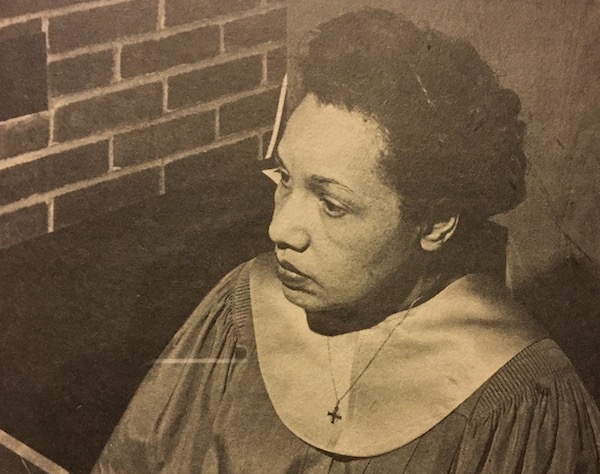
Maybe that’s because I write this on Christmas Sunday morning, an especially sacred day in my household, and often the busiest day of the year. My father, re-channeling his inner Oliver Wendell Holmes, had at age 40 been called to his first pastorate by one of Cleveland’s oldest black churches, Mt. Zion Congregational Church. My mother, a music professor at Howard University, resigned her job and came to Cleveland with her husband and two grade school children to start a new life in the bustling Midwest metropolis that 1953 Cleveland seemed to be. She was 38 and I had no idea that her earthly life was more than 3/4 spent.
She might have known that, however. Several years earlier, she had undergone a double mastectomy, undergoing radical radiation that left scars and disfigurement that I can still see. Radiation burns and extraordinary edema notwithstanding, she was beautiful both inside and out.
The church was in a precarious position. Its last pastor had moved onto a bigger church in Chicago. The last church home had been sold and converted into a nursing home by new ownership. Sunday service was held in two small meeting rooms at the Cedar YMCA. The church office was down the street, sharing a suite of rooms with a dental practice. The dentist was a church trustee who lived upstairs from his practice. There was a parsonage in Glenville, with a huge sycamore tree that dwarfed the two-cent postage stamp of a lawn.
And there was a choir. It seemed to sing only dirges.
But the church congregation was not without assets, primary among which was a core of faithful members. These included several leaders who even in de facto segregated Cleveland of the 1950s were accomplished professionals and community leaders.
But about that choir. My mother, Marjory J. Andrews, became the organist and choir director sometime in that first year. Within no more than three years, she had five choirs going, for everyone from preschoolers to the transformed Chancel Choir. It was the latter where her impact was most dramatic. The Mt. Zion music ministry became known throughout community. Its repertoire included Tchaikovsky, Handel, Beethoven, and prominently featured brilliantly arranged Negro spirituals.
On the Sunday before Christmas, Mt. Zion Vesper Service began at 6pm. If you weren’t there early you either had to stand in the back or along the sides, or sit and hear through loudspeakers from an anteroom. Worshippers came from all over, from Lakewood and Rocky River to Chagrin Falls.
My soft-spoken mother was a totally dedicated, demanding, professional. She was upbeat and optimistic, and she accepted no excuses for anything less than excellence. Her approach began to attract some of the area’s best singers and musicians, a process accelerated by the Church’s buying property in University Circle and building a magnificent sanctuary.
The choir included at least a dozen solo-quality singers, blended together in near perfection with supporting voices. Members were schoolteachers, basketball coaches, grad students, housewives, engineers, and probably a couple of roués. They were black, white, straight, gay, young and seasoned.
Long story short: I never thought of my mother as a leader, though clearly she was. She was my mother. I did understand that professionally she was an accomplished and dedicated musician who, despite the severe physical limits under which she labored as a result of her cancer, always found the stamina to practice.
But with half a century to figure it out, I realize that my mother was not just a leader in her profession. She was a builder. And she worked with everybody. She built an outstanding music program by focusing on the mission. She never sought personal acclaim and did everything she could to enhance the ensemble over any individual. And she found a place for everyone. If you couldn’t sing especially well, maybe you could maintain the music library.
She never assumed that your social status, skin color, or previous condition established your talent or worthiness in support of the common endeavor. And she never accepted that excellence and equity were incompatible.
I could say more, but I hope the point is made. Cuyahoga is a venerable institution with a rich history. We face daunting challenges that are both real and spiritual. Our choir sings dirges. We have lots of talent, though we stifle much of it.
We seldom focus on excellence and equity as partners.
We need builders who will focus on our joint mission to create a healthier community and not worry about who gets the credit.
• • •• • •
This column was first published here.



